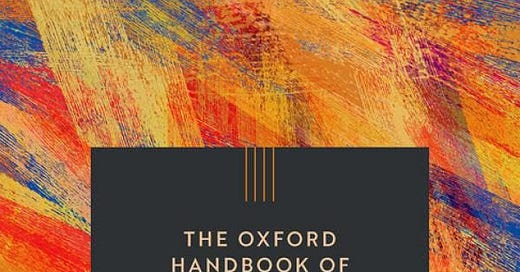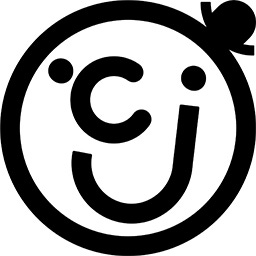Q+A: Gina Arnold on The Oxford Handbook of Punk Rock and Working with Academic Publishers
Interview with a legend!
The Oxford Handbook of Punk Rock is her current project, and we’ll get into more with Gina Arnold in today’s Q+A!
Tamara Palmer/Music Book Club: How did The Oxford Handbook of Punk Rock come about, and how long did you work on it?
Gina Arnold: Sadly, the book took a full 7 years to reach print! George McKay, my co-editor, and I conceived of the book at a conference in 2018, and the actual copy was in about 18 months later; but after that things got quite hung up. There were a few glitches to do with Covid — the Oxford University Press ended up switching vendors, which was one hangup, and there were other in-house issues. In fact, the chapters are all available online, but you need to have university access to read them.
Seven years is long, it's become hard for me to remember everything in the book. There is one chapter, by Daniel Traber, which deals with the idea of the THEN president, DT, being termed 'punk' by the press. I remember George saying, "You Americans are so obsessed with this, but the thing is, eventually his term will be over and this chapter will be outdated." After Biden was elected, I thought that was true. Very sadly, it is now relevant again...
Prior to the Handbook, you edited the Life, Death, and Afterlife of the Record Store — how has the reception to this anthology been, and what's its origin story?
In fact, that book was conceived of and edited and released AFTER I edited the Oxford Handbook! It was just done much more efficiently. (Sorry Oxford!) That was a super fun project. That was an idea I had been kicking around for a while, but it wasn't til I mentioned it to John Dougan that it became a reality, as he really ran with it, and did a lot of the heavy lifting on the front end (i.e. he blocked out the book proposal and shopped it around.) We felt that it was too many chapters for just us so we drafted Christine and Matt to help, which made it more international. It made it so it was a hard time to find good Zoom times — since we were in California, Tennessee, Australia and the UK, respectively.
One thing that I would like to mention, to people who are curious, is how we find authors for each chapter. As I said, George and I conceived of the punk idea at a conference, then we circulated a call for chapters in various academic places. We got a lot of good responses, but in the end, your book ends up being shaped by what people say they want to write about. For example, we got a lot more responses from English scholars than American ones, and that shapes it a bit. We got a lot of international responses, from authors like Asya Draganova, for example, who came of age listening to punk in Bulgaria - so we have a chapter on Bulgarian punk...but not one on Italian punk... and so forth.
We had certain ideas of things we thought needed to be covered— fashion, for example, so I reached out to Monica Sklar, whom I met at a conference — and I really wanted to have more non-white authors but that was a bit tricky, since many people we reached out to weren't interested. I greatly wanted to have a chapter on Muslim punk but both the people I talked to ended up falling through. In the end, we got a lot of very interesting chapters but it sort of writes itself, rather than one getting people to fill in blanks.
When we circulated the call for papers for the record store book we got even more responses — it seems everyone had a record store they wanted to write about. I knew that book would be a winner because when I talked about it to NON scholars — just anyone — they had a story about their local record store. I remember having a conversation at a diving meet in Budapest with a guy who was a cop, who told me all about his small town record store. So, we had a lot to pick from. It was hard! Record stores really are a nexus for community — embodied Facebook, or something like that.
Some of my favorite chapters in that are the ones on Jamaican record stores in London in the ‘70s, the one on Nigerian record stores, and Lily's chapter on tape stores in Iran before the revolution. We ended up not even writing chapters ourselves because we had too much material, but of course we all had one we wanted to do. You could do one on every city in America.
Are you still planning on releasing a digital version of your Nirvana book, Route 666? If so, will you update it as well?
Yes! I am planning on releasing it soon, as an ebook... I have been really dilatory about that but that's a this summer project. It's only updated in that I've added a new introduction that discusses the aftermath of grunge, and also, its role in my life. Since it was written before Kurt Cobain died, I felt I had to do that, but the narrative itself doesn't lend itself to additions like, ‘Oh by the way, he DIED next year!'
I think people reading it all KNOW that, so it's a needless interruption anyway, but it certainly makes reading it more poignant.
That book is also just a snapshot of a time and a place in my life — in people's lives — and has to be read that way. It might not make sense to the Youngs. I mean, we cared so much at the time what label an act was on... that's hard to convey, why we felt that way.
What's it like working with academic publishers vs. commercial ones? Any advice on navigating publishers in general?
Hmm, well I think the previous answers probably tell a bit of tale about working with academic publishers. I have had a good experience with Bloomsbury Academic, but it should be said straight up, no money changed hands on that, so there's that issue. (I have received royalties on all my Bloomsbury books though, bear that in mind.) There was upfront money involved in the Oxford book — small amounts. One issue with academic books is the peer reviewing process delays everything and may or may not really strengthen the books — there's some power and bullying going around that that's sort of a weird aspect of the culture. But it’s the delay that’s most difficult to deal with.
There was a time when I first joined academia, when I was told that you published on academic press, for no money, because it would get you a job, but I have never gotten a 'real' job in academia, despite having done tons of publishing, so... yeah, I think that's false. For a while I was OK with writing for free, for various reasons, but the thing is: now the paradigm is, you get no money AND no one has access to your books or articles because they are behind a huge paywall. So: no money AND no access? NOPE. Not doing that. Just...not.
I truly enjoyed writing for the trade press back when I did it, but it has shrunken to a point of no return. No one in publishing is interested in my book ideas or my writing, probably with good reason — I have been told in no uncertain terms by really a whole lot of editors, agents, etc., that it's too niche. So I probably won't get to write another book and that makes me sad, but it's the world we live in, not anything about me. I think I was lucky to get into writing about music when I did, and to be allowed to do what I did.
Do you have any favorite music books (past or present) to recommend to our readers?
This is a hard question for me. To be honest, I really only like to read fiction, and books about fictional bands are almost invariably bad, because it's so hard to capture music in words — pretend music, I mean. And the aspect of rock that I was interested in was never sex and drugs — that is why my own work is considered niche and boring by publishers — so I don't like the Great Jones Street/Daisy Jones and the Six type books. I really liked Juliet Naked by Nick Hornby. Jesse Walters’ Beautiful Ruins. Generation Lost, by Elizabeth Hand. I like it in books when people's love of live music is integrated into the plot, and isn't THE plot.
I like the books of Franz Nicolay, Band People and The Humorless Ladies of Border Control. And if I think of more I'll let you know!
Previously in our Q+A series:
Tom Beaujour on His New Lollapalooza Book and Producing Successful Oral Histories
John Morrison on Boyz II Men and Chronicling Philadelphia Music History
Lyndsey Parker on Writing a 'Stranger Than Fiction' Memoir with Mercy Fontenot
Christina Ward on Running Feral House, a 36-Year-Old Indie Book Company
Ali Smith on Speedball Baby and Telling Stories Without Shame
Arusa Qureshi on Her Love Letter to Women in UK Hip-Hop
Lily Moayeri on Her Favorite Music Books and Writing from a Personal Place
Megan Volpert on Why Alanis Morissette Matters and Writing 15 Books in 18 Years
Mark Swartz on Biggie + Yoko Ono as a Crime-Fighting Duo and Other Fictional Ideas
Annie Zaleski on Cher, Stevie Nicks and Pushing Past Writing Fears
Nelson George on His Next Book and Making Mixtapes in Paper Form
Michaelangelo Matos on Writing and Editing Music Books










awwwww thanks for namechecking my chapter Gina!
your editing and insights were unbelievable
can't wait to read this. and I'm forever a fan of Gina's East Bay Express column — I believe it was called Fools Rush In 🎶